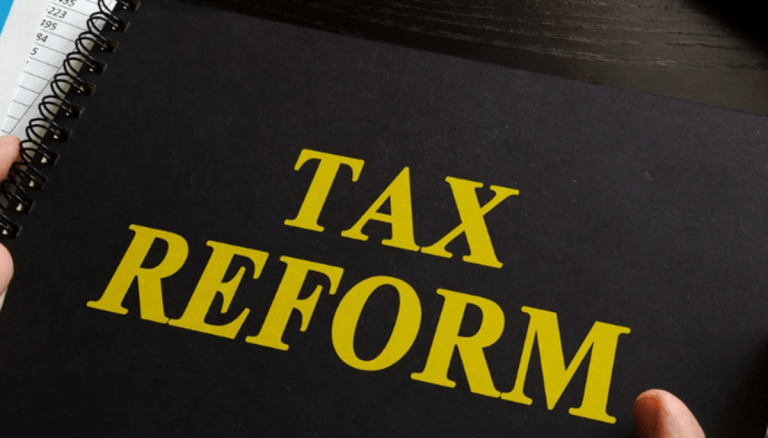Mr Jamilu Aliyu Charanchi, the National Coordinator of Northern groups, and Wisdom Chapp Jumbo, a public affairs analyst from Lagos in an appearance on The Conversation on NewsCentral Tv spoke about the Northern opposition to the tax reform bills.
Mr Charanchi explains that the Northern opposition to the tax reform bills is not about regional divides but concerns over inadequate consultation.
‘The issue of tax reform bill is not an issue of northern or the southern part of the country it’s an issue of Nigerians,’ Charanchi.
He emphasises the need for more discussion, citing ambiguities in the proposed bill, particularly the tax-sharing formula. He points out issues with the distribution of funds, suggesting the 5% allocation to state governments should be redirected to local governments instead.

Additionally, Charanchi highlights the lack of clarity regarding consumption data, which is crucial for fair tax distribution. He calls for the government to allow more consultation before rushing the bill through, as he believes democracy thrives on open discussions.
Due to the lack of company headquarters in the northern part of the country, any method of tax allocation raises concerns, particularly about the challenges faced by Nigerians, such as economic hardship, insecurity, and survival difficulties. Mr Charanchi expresses doubt that the proposed tax reforms will address these pressing issues.
He refers to Section 59 of the bill, which mentions the allocation of funding, raising concerns about the future of certain agencies, particularly in education, digital economy, and science and engineering. He believes the government should delay the bill until more extensive consultations are conducted across the country.
Wisdom Chapp Jumbo, responding to Mr Charanchi’s points, acknowledges that there are four bills rather than one. He trusts the committee, led by an experienced tax leader, and believes the process has been thorough. While he acknowledges the concerns raised, he argues that reform is always a work in progress, and the committee has made efforts to engage with stakeholders. He feels the bills were not rushed but that public reaction is only coming now that the bills have reached the National Assembly.
Wisdom Chapp Jumbo disagrees with the notion that there was insufficient consultation on the proposed tax reform bills. He believes that the government, particularly the President and National Assembly, has made considerable efforts to engage with Nigerians.
Jumbo acknowledges that Nigeria lacks proper data collection, which makes understanding the impact of the bill challenging. However, he also sees potential benefits for local governments and notes that the committee has been open to concerns, including those from Northern leaders, and is giving room for further consultations.
Jumbo stresses the importance of reform, arguing that the country has a rare opportunity to address long-standing issues.
He highlights that the current tax system is inefficient, with multiple taxes creating confusion for businesses. Despite the concerns raised, he believes the reform is essential for improving the business environment and economic growth.
On the other hand, Jamilu Aliyu Charanchi expresses opposition to the proposal to increase VAT from 7.5% to as high as 10–15%.
He argues that the economy cannot support such an increase, citing the current economic hardships and the lack of tangible benefits from existing taxes, especially given the high debt servicing burden.
Charanchi calls for a reduction in VAT to 3%, highlighting the severe financial strain faced by Nigerians and the lack of clear evidence that the taxes are being used effectively for infrastructure or other public goods.
Jamilu Aliyu Charanchi criticises the proposed tax reforms, questioning the benefits of increased taxes, especially given Nigeria’s existing economic challenges.
He argues that despite loans taken from around the world, the country still suffers from poor infrastructure, a lack of local production, and continued reliance on foreign services for healthcare and education.
Charanchi believes that the proposed increase in VAT to 10-15% would worsen the economic situation, further burdening businesses and consumers, especially with the high costs of goods and services. He fears such increases will lead to more unemployment and poverty.
In response, Wisdom Chapp Jumbo acknowledges the proposed exemptions for essential goods and services, including food, healthcare, and transportation, which he believes makes the bills more people-centric. However, he urges Nigerians to view the reform holistically, highlighting the harmonisation of various taxes into one system to improve efficiency and ease of doing business.
He praises the government’s efforts to integrate technology into tax administration and streamline the process. Jumbo also stresses that while the reforms aim to alleviate the tax burden on the poor, it is essential for the government to demonstrate responsibility in how tax revenues are spent, ensuring that the benefits reach ordinary Nigerians and not just the elite.
In discussing the tax reforms, the central concern is how the government will use the increased revenue.
Wisdom Chapp Jumbo expresses concerns about government transparency and accountability, questioning how the authorities will ensure that the tax revenue is responsibly spent.
He highlights that there seems to be a lack of mechanisms in place to ensure that public funds are not misused. Despite this, Jumbo acknowledges the potential positive outcomes of the reforms, provided they are implemented responsibly.
Jamilu Aliyu Charanchi raises concerns about the economic difficulties faced by the northern region, pointing out that despite the region’s production of essential goods like grains and beans, the VAT exemptions for consumables could hinder the ability to generate revenue.
He also criticises the fact that many companies are headquartered in Lagos, meaning that the tax benefits of these companies are not benefiting the northern region as much. He suggests that if more company headquarters were relocated to Abuja, this could balance the distribution of tax revenue more fairly.
The discussion also touches on Nigeria’s historical shift of economic power to Lagos, with Charanchi arguing that this centralisation of business activity in Lagos is a significant factor in the unequal distribution of wealth and tax revenue across the country.
Both Charanchi and Jumbo agree that a more holistic approach to the reform is necessary, with attention to regional inequalities and the need for more balanced economic development across Nigeria.


